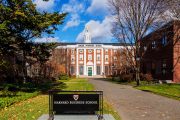
It’s a tactic that we have seen often in recent months: Rather than engage the arguments made by constitutional conservatives on various issues, secular progressives prefer to silence their opposition by refusing to allow them a platform.
Now, the “conservative” organization calling itself the Convention of States (COS) is engaging in a similar tactic. Rather than attempting to refute the arguments of one of their most noted opponents, Robert Brown, COS leaders are asking state legislatures to refuse to even listen to Brown.
COS wants a national Constitutional Convention — or as they prefer to call it, a “Convention of States” or “Article V Convention” — to consider making amendments the Constitution of the United States. They appeal to many patriotic Americans who are understandably frustrated with the way the federal government has ignored the clear wording of the U.S. Constitution in multiple ways, and contend that the way to rein in the ever-expanding powers of the federal government is a national convention.
In contrast, Robert Brown argues that a national Constitutional Convention is not only not the best way to accomplish this goal, but it actually is a dangerous undertaking that could lead to the ultimate destruction of the Constitution and our federal republic.
Brown has written extensively on the subject, and has produced videos in which he argues his case against a Constitutional Convention. As he told The New American, his initial heightened interest in the Constitution was sparked by a presentation he heard in 2006 from John Eidsmoe, a law-school professor and author, on the meaning of the Constitution. That left him hungry to learn more.
What Brown noticed was that there were two schools of thought on the Constitution, those who tended to tell what the Constitution means, and those who show what the Constitution means. Those who show, Brown told The New American, are those who actually cite documents and evidence. What Brown has found most helpful, besides the actual text of the Constitution itself, are the notes James Madison took at the 1787 Constitutional Convention; and the Federalist Papers, written by Madison, Alexander Hamilton, and John Jay, in which they expound on the Constitution’s meaning.
One would think that if Brown’s arguments against the calling of a national convention now were so weak, then COS would not care whether he testified at hearings of state legislatures. But rather than attempting to defeat his arguments before legislative committees considering the question of whether to ask Congress to call such a convention, they are devoting their energy to attacking Brown’s supposed lack of credentials.
Case in point: When Brown recently testified via Zoom to a South Dakota legislative committee hearing, he was quizzed about his credentials as an expert witness.
“I don’t pretend to have any particular credentials other than that I have a very rare quality, in that I have the ability to read,” Brown responded.
On its website, COS ridiculed Brown, arguing, “Every nationally-known credentialed lawyer, peer-reviewed conservative constitutional scholar, and tenured professor who has spoken about the Convention of States Project has spoken in favor of the project.”
“It is time for state legislatures to end this farce. Charlatans like Brown have no place in the legislative processes in states around the country,” COS insisted. In other words, muzzle Brown.
Of course, it is the Constitution of the United States itself, in the First Amendment, that guarantees the right of all Americans to “petition” their government. One does not have to be a lawyer, for example, to be able to read the clear wording of the Constitution, or historical documents such as Madison’s notes made at the Constitutional Convention, or the previously mentioned Federalist Papers. The Federalist Papers were intended to be read by the average farmer in New York State, not just lawyers.
There is nothing mysterious about the Constitution that only lawyers can decipher. One can become an expert in the Constitution (and many other matters) by reading. While COS ridiculed learning by reading rather than by having a degree (does this mean that they don’t read to formulate their own opinions?), John Toland became one of America’s foremost historians, winning the Pulitzer Prize for his book The Rising Sun (about pre-World War II and World War II Japan), despite his college work being in drama. Toland did primary research into documents neglected by college-educated historians. In other words, Toland learned the history by reading, much like Brown.
Among the discoveries made by Brown by reading the Federalist Papers were remarks from James Madison in The Federalist, No. 48: “A mere demarcation on parchment of the constitutional limits of the several departments is not a sufficient guard against those encroachments which lead to a tyrannical concentration of all the powers of government in the same hands.” In other words, the Constitution does not enforce itself — the people must hold their government officials accountable to their oaths to follow it. In The Federalist, No. 49, Madison added, “The danger of disturbing the public tranquility by interesting too strongly the public passions is a still more serious objection against a frequent reference of constitutional questions to the decision of the whole of society.”
Brown likened Madison’s remarks to a letter in a time from Madison to COS leader Mark Meckler. Brown has challenged Meckler to a public debate on the issue, a challenge that Meckler has so far failed to accept.
Insofar as experts go, the late Supreme Court Justice Antonin Scalia once told the Federalist Society that he opposed calling a national Constitutional Convention, because, he explained, this is a bad century in which to write a Constitution. After all, who wants the same electorate that made Nancy Pelosi speaker of the House and Chuck Schumer the Senate Majority Leader to be picking delegates to a convention designed to make changes to the Constitution?
Another supposed “expert” who does support calling a national Constitutional Convention is Lawrence Lessig, a former liberal law-school professor at the University of Chicago, a participant at the globalist Bilderberg conference, and an advisor to then-Senator Barack Obama. In his book, Republic, Lost, Lessig called for a new Constitutional Convention as the only way to make the fundamentally transformative changes he wants. “Even though it has never happened, a constitutional convention is the only final plausible strategy for forcing fundamental reform onto our Congress.” (Emphasis added.)
Conservatives should understand that any convention called by the states under Article V of the Constitution would be populated by left-wing individuals such as Lessig, in addition to well-meaning conservatives who want to rein in the federal government. Brown understands that. James Madison feared another Constitutional Convention. Anyone who wants to keep our present Constitution should also fear it.
One should look with suspicion upon any group such as COS that prefers to launch personal attacks against their opposition and boast about the credentials of their own “experts.” And, like Robert Brown, one should read and study for oneself, which is the way one really becomes an expert.




